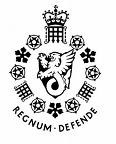
By Eamonn McCann (for Sunday Journal)
There is a connection between the civil action brought by relatives of Omagh bomb victims and the arrests in relation to the killing of the two soldiers in Antrim and the PSNI officer in Lurgan.
Hearing of the civil case drew to a close at the High Court on Wednesday after 12 months of evidence and submissions. The judge, Mr. Justice Morgan, is expected to deliver his verdict in June.
The relatives claim that Michael McKevitt, Liam Campbell, Seamus McKenna, Colm Murphy and Seamus Daly were among the Real IRA group responsible for the blast which caused the worst single loss of life in the Troubles.
Defence lawyers argued, and prosecution witnesses didn’t contest, that even if the five men had been involved in the bombing, there is little evidence that they had intended mass murder. The implication is that it may have been a failure to convey information to police on the ground that resulted in the vehicle carrying the bomb not being stopped before it reached Market Street and people left milling around in the vicinity of the spot where it was eventually parked.
The close of the trial came on the same day as John Ware gave evidence to the NI Affairs Committee at Westminster about his Panorama documentary, “Omagh: What the Police Were Never Told”.
After the broadcast last September, Panorama was attacked by MPs and a number of commentators for “leading the families on”. Reacting to the attacks, Gordon Brown asked Intelligence Services Commissioner Sir Peter Gibson to examine the evidence the programme had been based on and to produce a report.
It didn’t come as a surprise when Gibson reported in the first week of February that the security services and the police had behaved properly in all respects, that there was nothing they could have done to prevent the bombing.
The relatives angrily rejected Gibson’s findings, travelled to Downing Street to complain and pressed MPs to investigate further.
Appearing before the Commons committee on Wednesday, Ware dismissed Gibson’s report as “disingenuous”, and went on: “He does not challenge our claims that CID were not given the numbers of those mobiles that were being intercepted on the day of the bombing. It is what he doesn’t say that is important. He doesn’t explain why CID were not told there had been intercepts. He doesn’t explain why CID were left for nine months to trawl through phone logs to make connections---which phones were speaking where and when on the day.
“In other words, he [Gibson] doesn’t address what is the nub of the programme, which is encapsulated in the title ‘Omagh: What the Police Were Never Told’. He carefully avoids dealing with the central issue.”
Ware didn’t say in the programme, and didn’t suggest to MPs, that MI5 or the Special Branch or the secret communications centre at Cheltenham, GCHQ, could have prevented the bombing but deliberately chose not to. He does say that the security services had information pointing to another imminent town centre attack by the Real IRA but didn’t pass this on to police on the ground. He also says that a phone used by Colm Murphy was being monitored on the day so that it would have been possible to trace and record his movements, but that police investigating the bombing were never told about this.
The implication isn’t that spooks and snitches were to blame for the bombing--the bombers were to blame for the bombing--but that preventing a massacre and catching those responsible was given a lower priority than protecting the secrecy and secret agenda of shadowy State agencies.
The continuing relevance of these allegations arises from the current involvement of the same agencies in the North. MI5 now operates from a huge complex just outside Belfast where hundreds of officers conduct what is obviously a massive enterprise. What can the “devolvement” of police and justice powers to Stormont amount to against that background?
The role of MI5 and other murky outfits--the Special Reconnaissance Regiment, for example, successor to the Force Reaction Unit which, with MI5, was up to its oxters in the murder of Pat Finucane and many others--will continue to overlap with PSNI operations. Yet, as Hugh Orde has made clear, the Police Authority will have no right to know of, much less to supervise, these activities.
The intersection between intelligence and policing at the moment was made explicit at a court hearing on March 14th when Detective Inspector Peter Farrar admitted that the evidence being used to hold the McGlinchey brothers and Colin Duffy was based solely on intelligence. (On Friday, police claimed that they had discovered DNA evidence against Duffy in the interim.)
What reliance can be placed on intelligence information brought forth in this context while the truth about the intelligence services’ role in Omagh continues to be kept hidden from the police and the courts, never mind politicians and the public?
The policing deal was sold on the basis of an assurance that devolution would take control of policing out of the hands of British officials and put it instead in the hands of local representatives: this was the key consideration for Sinn Féin. Where stands that assurance now?
![[Irish Republican News]](https://republican-news.org/graphics/title_gifs/rn.gif)
![[Irish Republican News]](https://republican-news.org/graphics/title_gifs/harp.gif)

